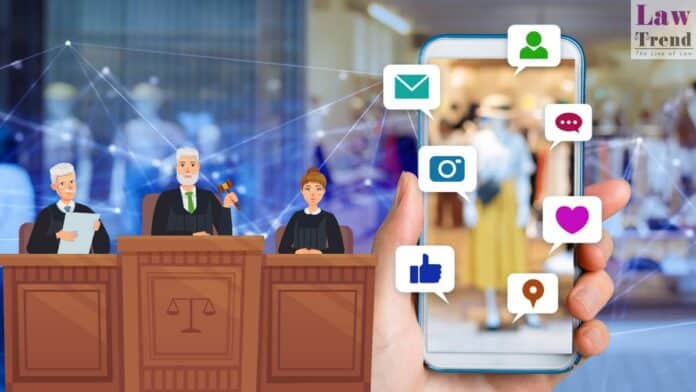The Supreme Court on Monday stressed the importance of self-regulation and public responsibility in exercising the right to freedom of speech and expression, especially on social media platforms. A bench comprising Justices B.V. Nagarathna and K.V. Viswanathan made these observations while hearing a plea related to multiple FIRs filed against a man over objectionable posts.
The case involves Wazahat Khan, who was booked in several states — including West Bengal, Assam, Maharashtra, and Haryana — for allegedly posting offensive content against a Hindu deity on X (formerly Twitter). Khan was earlier granted interim protection by the top court on June 23, which was extended till the next hearing.
During the hearing, Khan’s counsel pointed out that the FIRs appeared retaliatory in nature, following a complaint he had filed against another influencer, Sharmistha Panoli, for allegedly making communal remarks. Khan’s lawyer argued that while offensive content is condemnable, it should not be responded to with further offensive posts, and that Khan had deleted the controversial tweets and issued an apology.
Justice Nagarathna observed, “Citizens must know the value of the fundamental right of freedom of speech and expression. The State can step in in case of violations, but nobody wants the State to step in.” Emphasising the need for mutual respect and harmony online, she added, “All this divisive tendency on social media has to be curbed.”
The bench clarified that it was not advocating for censorship, but hinted at the possibility of framing guidelines to regulate speech on digital platforms, consistent with the constitutional restrictions under Article 19(2).
“There should be fraternity among citizens,” the court remarked, underscoring that freedom of speech comes with reasonable limits and social responsibilities. The judges requested assistance from the parties’ counsels on the broader issue of defining self-regulation in the context of online expression.
Khan was arrested by Kolkata Police on June 9 and has since approached the apex court seeking protection from multiple complaints stemming from old tweets. His counsel admitted that Khan may be “reaping what he has sown,” but maintained that the matter has now been addressed by removing the posts and issuing an apology.




